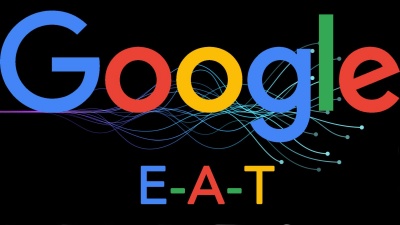HOW TO ENSURE YOUR WEBSITE MEETS GOOGLE E-A-T GUIDELINES

Google's E-A-T guidelines (Expertise, Authoritativeness, Trustworthiness) are an important aspect of search engine ranking and website credibility that refers to a set of quality guidelines used by Google's search algorithm to assess the credibility and reliability of web pages and content.
Websites that demonstrate high levels of expertise, authoritativeness, and trustworthiness are more likely to rank higher in Google's search results. Google’s E-A-T is particularly important for websites that provide content related to health, finance, news, and other sensitive topics, as accuracy and trust are crucial in such areas.
By following these guidelines, you can help improve your website's visibility in the search results and ensure it meets the requirements set by Google. Here are some steps to ensure your site meets Google's quality rater guidelines:
Create High-Quality Content
Produce content that is well-researched, accurate, and informative. Focus on expertise in your niche or industry and avoid misinformation or low-quality content.
Expert Authors
Have your content written by experts in the field. Clearly display author information, including their credentials and expertise, to establish trust with your audience.
Author Bios and Credentials
Provide detailed author bios on your website, outlining their qualifications and experience. This helps demonstrate the expertise of your content creators.
External Authoritative Sources
Whenever you make factual claims or cite information, link to reputable and authoritative sources to back up your content.
About Us Page
Have a comprehensive "About Us" page that highlights your organization's background, mission, and any relevant certifications or awards.
Build Backlinks from Trusted Sites
Seek to get backlinks from reputable websites withn your industry. These backlinks signal to Google that your content is valuable and trustworthy.
Engage with Your Audience
Respond to comments and engage with your audience on social media and other platforms. Interacting with users helps build trust and shows that you care about your visitors.
Website Security
Ensure your site is secure with SSL certificates (HTTPS) to protect users' data and build trust.
Transparency and Contact Information
Make your contact information, including physical address and phone number, easily accessible. Transparency about your organization adds credibility.
User Reviews and Testimonials
If applicable, display user reviews and testimonials prominently. Positive feedback from real customers can enhance trustworthiness.
Avoid Clickbait and Sensationalism
Clickbait refers to online content, such as headlines, images, or video thumbnails, that are designed to attract attention and encourage users to click on a link, often leading to a particular website or web page. The primary goal of clickbait is to generate more traffic, views, or engagement for a particular piece of content, typically for advertising purposes or to boost the visibility of a website or platform.
Clickbait often employs sensational or misleading elements, promising intriguing or shocking information to entice users, but the actual content may not deliver what was initially promised. Refrain from following these tactics and focus instead on providing accurate information.
Site Design and Usability
Create a user-friendly website with easy navigation and clear layout. A well-designed site improves user experience and helps establish trust.
Mobile-Friendly
Ensure your site is optimized for mobile devices, as a significant portion of web traffic comes from mobile users.
Regularly Update Your Content
Keep your content up-to-date and relevant. Outdated information can harm your site's credibility.
Avoid Deceptive Practices
Do not engage in any deceptive practices, such as:
1. Hidden text
This refers to the practice of including text on a webpage that is not visible to website visitors but is intended to be seen by search engines.
2. Cloaking
Cloaking presents different content to search engine crawlers (bots) than what is shown to human users.
3. Spammy link building
This refers to the practice of acquiring low-quality and irrelevant backlinks to a website with the aim of manipulating search engine rankings.
These can lead to severe penalties from Google.
Remember, Google's algorithms and guidelines evolve regularly. Staying updated on the latest SEO developments and E-A-T principles is crucial. Following these guidelines will not only help your site meet Google's E-A-T standards but also enhance your overall online reputation and authority. If you need help navigating E-A-T, contact our SEO agency in London.

